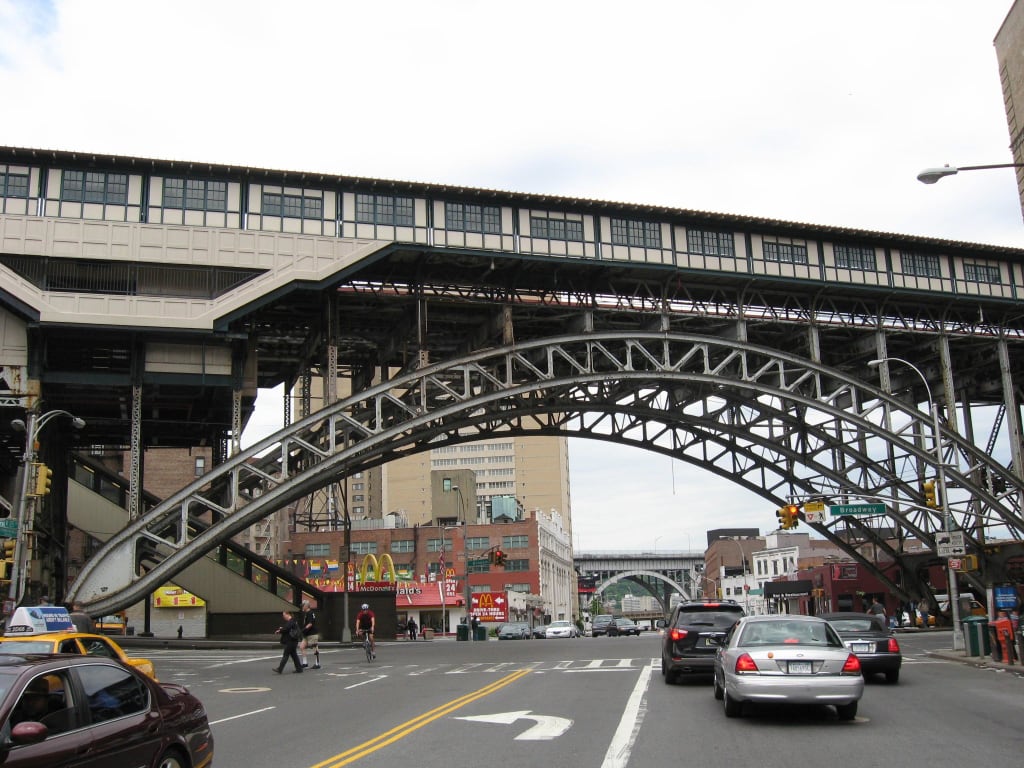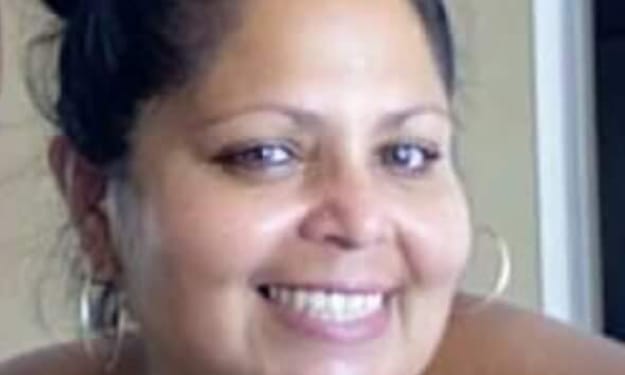545 West 125th Street
Growing up in West Harlem

Summer nights at 545 were usually sweltering, noisy, and buzzing with activity. From the vantage point of our second-floor fire escape, we were always privy to what went on below. Our neighbors, mostly Antilleans, looking to escape the heat of their small, non-airconditioned apartments, would come downstairs as soon as the sun set to sit in what they hoped would be the cool New York City night air and find some respite. I, for one, always marveled at the range of materials they would bring down to sit on. Some would bring a beach chair or two. Others would borrow milk crates from the bodega next door. Still, others would find a spot on the front stoop of our building on 125th Street in West Harlem, often blocking the entrance but graciously moving out of the way as others came in and out. My earliest memory of home is this tenement building and community. I lived there with my family for my first 12 years, and we always called the building by its number - 545.
An older building, 545, was nondescript, even back then. Its grey-stoned exterior was most notable for its peeling paint, cracked front steps, and façade that looked perpetually dirty. An unlocked front door gave no clue to the expansive interior that greeted you as you walked through the doors. Towards the end of the first floor were three apartments. The biggest apartment in the middle was a two-bedroom flanked on each side by two smaller one-bed units. That center residence was where the building super and family always lived. When I was born in 1962, and until I turned two, our home was Apartment 10, next door to the Super.
My parents moved into 545 just after they married in 1961. I was born in 1962, and my sister, Norma, in 1963. Our Abuela, Crescencia, whom everyone called Crescy, lived on the sixth floor of the same building. She worked in a factory at the time but, at some point, left her job to become our primary caregiver. So, we moved to the second floor, to Apartment 22, sometime in late 1963, after my sister Norma was born, and we lived in the building until we moved to the East Side in 1974.
Apartment 22 was a two-bedroom but not much bigger than the one we had before. As you entered the unit, a long hallway led you to a cozy living room with a kitchenette. There was only one window in that small room, and it looked out towards the dreary back courtyard of the building. The view it offered was all concrete, and if you looked up or down or across, all you saw were clotheslines as far as the eye could see. These extended from window to window and building to building. This was where our fellow tenants, migrants, and immigrants mostly hung their freshly hand-washed items like underclothes, shirts, and sheets that constantly flapped in the wind. Since we were on a lower floor, we would have to contend with the occasional feral cat, untamed from a life surviving in the wilds of an urban jungle. The one time we owned a cat, who we named Cathy, we quickly gave her up because stray cats roamed the back of our building and would perch on our windowsill, banging on the glass as they looked for a way to get inside. From then on, Ma did not allow us to go near the living room window. Still, despite what it lacked, it was a safe and familiar place for my family and me. It was home.
I was named after my paternal Abuela, Margarita. She passed when my father was very young, but as I recall, he held loving recollections of his Mama and named me, his first child, after her. My sister, Norma, was named after our mother. We called her Normita or Mita for short. She and I shared the smaller second bedroom of our apartment, which offered the same view of the courtyard as our living room. A tiny space within an already mini space, our bedroom furniture consisted of a bunk bed and a small standalone closet. Our mother and, on occasion, our father, who by that point was rarely home, slept in the other, more oversized bedroom. Their room had a window with a fire escape overlooking the street, so their outside view was much nicer. Occasionally, Ma would allow Mita and me to sit on that fire escape to watch the goings on below, and believe me, there was always something to see and hear, especially on scorching summer nights.
As unappealing as 545 was outside, what went on inside that brick edifice was what made it home for us. Mita and I forged a lifelong friendship with our Super Alejo's identical twin daughters, Antonia and Antoinette. They looked exactly alike, and few people could tell them apart. Mita and I were among the few who could figure out who was who. Whenever possible, which was mostly daily, we visited them in their apartment on the first floor. Theirs was also a two-bedroom and about the same size as ours. They shared it with their mom, Adela, dad, Alejandro, who we knew as Alejo, their older brother Alex, and their two older sisters still at home, Myriam and Linda. The oldest sisters, Adele and Elizabeth, had already married and moved out. The four remaining sisters slept in the tiny bedroom in the back of the apartment, where they crammed a bunk bed on one side and a full-size bed on the other. A small dresser completed the furniture scenario, and there was no space to do anything but sit. But every day, Mita and I went to Super's house to play with our best friends, the Twins. It was the most fun we had as children.
Our first babysitter was a woman Ma brought over from her homeland, Puerto Rico. I'll call her G. She was young then, and our mother trusted her to care for us until one day, G burned one of my buttocks. I don't remember the details of that awful story, although I do remember bearing the scar because it took a long time to fade. After that unfortunate incident, Abuela took over our care while Ma worked. During the day, while we were at school, she also cared for other children in the building. Our Dominican next-door neighbor, Doña Ramona, lived in Apartment 23, and her daughter, Janecita, was one of the younger children our grandmother babysat. Abuela would spend a good part of the week gently combing through the knots in the little girl's thick curly hair and, in the process, use up an entire container of hair cream, only to have Janecita return the following Monday with a new set of knots. But Abuela loved Janecita and vice versa, so they never minded doing it all over again, week after week.
One of my fondest memories of 545 was what would happen once the weather was warmer. New York City was a concrete jungle back then. Trees were sparse on our urban streets, and if you wanted to see any greenery, you had to go to Riverside Park, a few blocks away, so our neighbors made do with what they had in their quest for community and recreation. Back in the islands, one didn't sit in their apartments on blistering summer nights, so it was in those moments that 545 came alive. Instead, our neighbors would spend time together in front of the building, fans in hand, conversing, gossiping, listening to music, or just reminiscing about how their lives were pre-migration to the big city. These activities were how they sought respite from the oppressive heat of a New York City Summer night.
Music was also a big part of our community, and most summer nights would resonate with a myriad of tropical sounds and rhythms. Most of our neighbors, like my family, were from the Caribbean islands, many having migrated or immigrated from different countries. My family emigrated to New York City from Puerto Rico, so they favored Salsa, but for sure, there was a variety of music played on any given night. You would hear Tito Puente's rhumba, La Lupe's salsa, or Johnny Ventura's merengue from their record players. With these sounds resounding, we kids would play sidewalk games like hopscotch, jump rope, or Double Dutch. We learned new games like Mata Rire Rire Ron, which our parents taught us. Ma would sit on a milk crate she borrowed from the bodega, and neighbors would bring down their beach chairs while others sat on the front stoop. There, they would talk for hours. The language was not a barrier since almost everyone spoke Spanish, and everything in that space helped to merge a group of strangers, individually proud but collectively strong. They became a community, glad to share their rich cultural traditions, especially with us, the younger U.S.-born generation.
When we started elementary school, our father was mostly gone from our home. He had become a fleeting presence in our lives, but Ma, Abuela, and our neighbors were always there, making 545 more than a residence. It became a place of kinship with memories forged. It was our home, mooring, refuge, and place of being, but all that changed on June 1st, 1974. That day, our father returned to our lives and moved us away.
About the Creator
Margaret Jimenez
I'm a busy professional working in the world of nonprofits who aspires to be a writer. I have earned a writing degree in creative nonfiction, although as a lifelong bibliophile, I love to read fiction. Plan to dip my toe in that genre.






Comments
There are no comments for this story
Be the first to respond and start the conversation.